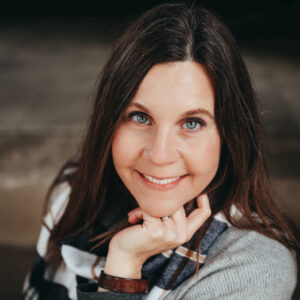
Cup of Welcoming
He offered me a cup. He knew I was thirsty. At first, I thought it was a directive with somewhat sarcastic tones, “Here, take this”. I had never pictured Jesus in that light. His request was confusing and hard to grasp. During the next few weeks, He continued to pursue, proposing the offer in many different contexts.
“Will you drink the cup?” The question rang loud and clear in the deep parts of my heart. My answer was quick and unapologetic. “I have to, what other choice do I have.” Was he questioning my responsibility as a mother? Did I need to declare my loyalty or commitment to the journey? Would my answer define my faith? His love?
I heard it again. The first song on Sara Groves album, Flood Plain, entitled, This Cup, beckoned with the same question:
This cup, this cup
I wanna drink it up.
To be right here in the middle of it.
Right here, right here
This challenging reality
Is better than fear or fantasy.
What if my whole world falls apart?
What if my life could be different?
What if I sat right here and took you in
Without the fear and loved you whole
Without the flight and didn’t try to pass …this cup? (Groves, 2015)
Her words spoke right to my soul.
To be right in the middle of this new country called Muscular Dystrophy and actually want to stay? To see the beauty. To not try to escape. To let fear fade. To hold onto hope in the midst of the unknown. To trust that lament would lead to greater healing.
Days later I drove to the Colorado foothills to join a few other women on a listening retreat. I sat in the small cottage bedroom assigned to me longing to understand how I was going to make my home in this new country. His question still lingered in my heart, but it was lost in translation.
The little cottage where we were staying was part of a retreat center called Mother Cabrini. It was nestled at bottom of a 400-step stairway leading up to “The Sacred Heart of Jesus” statue overlooking a panoramic view of Denver. This beautiful 22-foot statue had become a sacred space for me.
I bundled up and headed toward the front door of the cottage where I was welcomed by a quaint set of bookshelves I had never noticed before. Of course, being the reader I am, I stopped to browse. I heard it again. This time it the words of Henri Nouwen staring at me from the spine of a book: Can you drink the Cup?
Wait—what? What did that say? I did a double-take.
I was familiar with many of Nouwen’s books but had never seen this one. I shook my head. Tears filled my eyes. I slipped the small book into my coat pocket and made my way toward the mountainside staircase. I felt anticipation with each step. I was listening, wondering, wrestling.
When I reached the top there was silence. I was thankful for the quiet. I was hopeful.
I gazed up at Jesus and then out at the city that was my home. I had been here before, but this time with new perspective. I was drawn to how small the city was from this viewpoint. To be honest, cities intimidate me. I feel claustrophobic and small surrounded by skyscrapers and unknown streets. It can feel like I’m in another country. I find myself anxious navigating all the nuances. Here next to Jesus the city was not as overwhelming—not as looming and unknown. In fact, it looked somewhat like an adventure. I turned my eyes back to the huge statue behind me. The contrast was intriguing.
Large Jesus, small city.
His poise is intentional. Compassion flows from his posture. His eyes look down over Denver with care. One hand is extending toward the city—an invitation. His other hand is pulling back his garment, revealing His heart—a heart exposing the beauty of his love.
I felt Him saying, “Will you take my hand? Will you trust the deeper places of my heart?”
It was in that moment when this new language started to make sense, when the question he had been asking me finally took on its true form—an invitation. He was gently welcoming me not demanding or requiring a list of regulations.
The question came again, “Will you drink the cup?” It was an invitation to a new knowing—a knowing that declares delight and favor. He wasn’t requiring me to drink. He was inviting me to drink. He was guiding me toward flourishing and beauty. To awe and wonder. To empathy and compassion. To truly know His love.
It was in this new country called disability
…that He would show me the beauty of the cup of life. Disability felt intimidating, much like cities—overwhelming, unknown, difficult to navigate, a sense of lostness and loneliness. Next to Jesus could this new country actually be an adventure—an adventure full of laughter and tears, feeble feet and strong hearts, compassion and empathy? Could it be a journey to seek goodness in the midst of brokenness—a journey to know my Father’s heart and to know that He knows mine?
The words of Henri Nouwen from the small book in my pocket helped me translate this invitation offered. He talks about drinking the mixed cup of joy and sorrow.
“Making the best of it” is not what drinking the cup is about. Drinking our cup is not simply adapting ourselves to a bad situation and trying to use it as well as we can. Drinking our cup is a hopeful, courageous, and self-confident way of living. It is standing in the world with head erect, solidly rooted in our knowledge of who we are, facing the reality that surrounds us and responding to it from our hearts.
Nouwen continues, drinking the cup not only says “This is my life”, it declares, “I want this to be my life.”
With a heart of hospitality
…Jesus offered me something to drink—a cup that in all reality would not be easy to receive. But, as any good host would do for a weary pilgrim, he created a space for me to feel safe and welcome—a space to receive and to know that this cup would ultimately draw me into the mystery of a profound love story.
Cities still feel unknown, and I don’t have the market cornered on all the avenues of disability, but I do know this:
Turn your eyes upon Jesus.
Look full in his wonderful face.
And the things of earth will grow strangely dim.
In the light of his glory and grace. (Lemmel, 1922)
© Awakening Hope 2023. All rights reserved.

Written by Joy Hoot—wife, mother, writer, advocate, caregiver, and spiritual director apprentice with Anam Cara. In 2016 after 17 years of marriage, their 3-yr-old son was unexpectedly diagnosed with Duchenne Muscular Dystrophy. Jesus has invited her to unlock the door of hope through her journey of lament as she navigates her son’s life-altering, physical disability. She longs to invite hurting hearts to discover the beauty hidden in the sacredness of sorrow, welcoming the weary traveler into belonging, cultivating the belief they are beloved. Joy lives in Colorado with her encouraging husband, two beautiful daughters, and courageous son.
